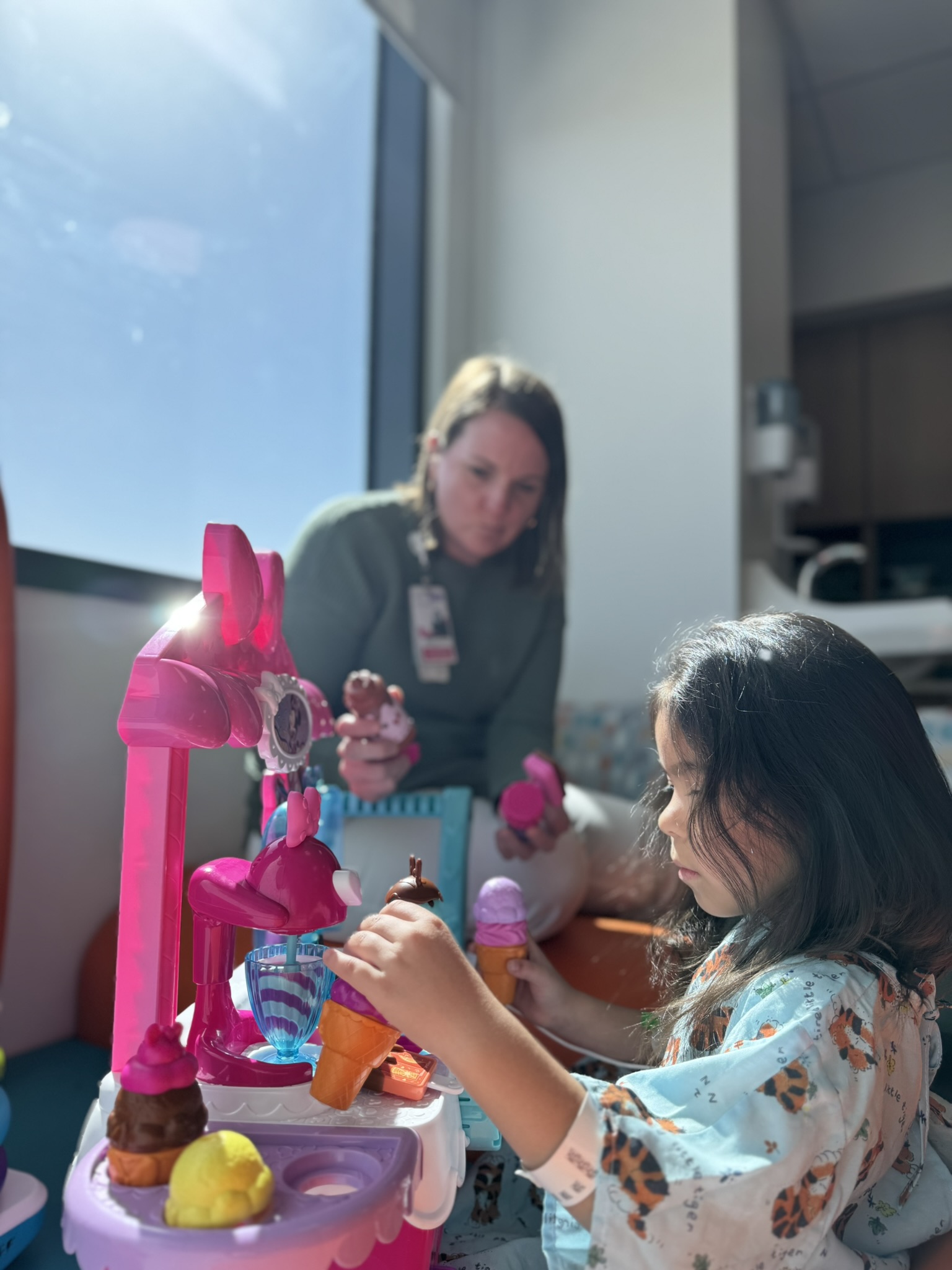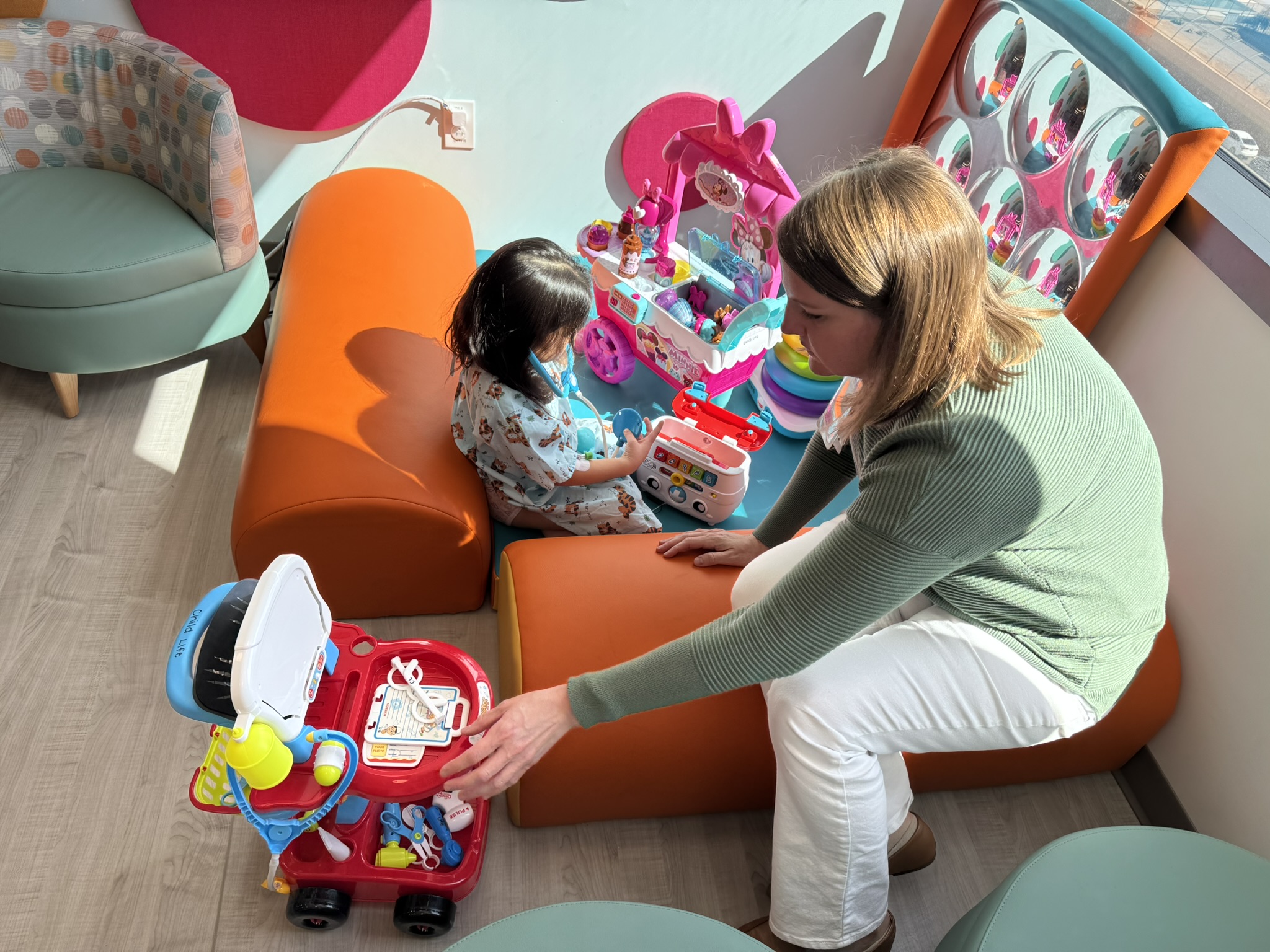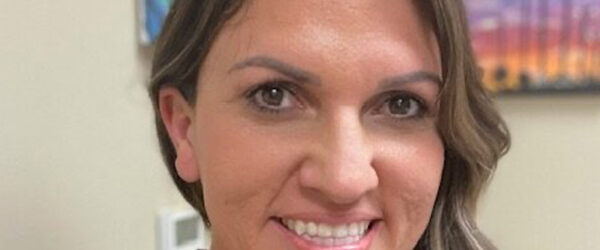More Than Medicine: How Child Life Specialists Bring Comfort and Care to Hospitalized Children
If you’ve never had a child in the hospital, you may not realize what a child life specialist does or how essential they are to a child’s healing journey. These trained professionals are a vital part of pediatric care, helping young patients and their families cope with the fear, confusion, and emotional strain of hospitalization. Their work extends far beyond playtime, focusing on building trust, easing anxiety, and creating moments of comfort when they’re needed most.
Valleywise Health is unique in that it is one of the only hospitals in the Valley with a full-time child life team on-site seven days a week. These specialists provide support services to young patients and their families to reduce stress and anxiety through education, distraction, therapeutic play, and activities designed to help children cope with medical experiences.


The child life team plays an essential role across high-stress areas of the hospital, including the Pediatric Intensive Care Unit (PICU), pediatric emergency department, trauma care, the main emergency department, pre-operative areas, and the Diane & Bruce Halle Arizona Burn Center, ensuring that children receive compassionate, developmentally appropriate care every step of the way.
“Our focus is simple – to make the hospital less scary for kids,” said Erica Jorgenson, who has been a child life specialist for more than two decades. “We aim to reduce the stress and anxiety for patients and their families when dealing with a hospital environment. We also help normalize the atmosphere for children, prepare young patients for procedures and educate them about their diagnosis. It seems simple, but our role can make a major difference between a successful hospital stay and a traumatic experience.”
Certified child life specialists are educated and clinically trained in the developmental impact of illness and injury. These dedicated specialists help young patients and their families cope with the uncertainty of acute and chronic illness, injury, trauma and disability, as well as loss. Plus, they provide evidence-based, developmentally appropriate interventions including therapeutic play, preparation for procedures, and education to reduce fear, anxiety and pain.
Having a highly trained child life team in the hospital and readily available helps the clinical team focus on their jobs. With a child life expert on hand, doctors and nurses can focus their attention on important medical tasks. They don’t have to distract, support or guide the patient through the process. That is what the child life specialist is there to do.
“Every day we work with the multidisciplinary team to help kids do hard things like blood draws, surgery, MRIs and countless other procedures,” added Jorgenson. “Our job is to give them power and strength in an environment where they don’t have a lot of say about what is happening to them or around them.”
Child life specialists are adept at advocating for pediatric patients and working closely with clinicians and parents to ensure a child’s emotional and developmental needs are considered during medical care. They also assist children and families in understanding medical procedures, diagnoses and treatments in age-appropriate ways, and conduct bereavement support and school reentry programs when needed.
For most families, child life specialists are a saving grace and provide much-needed resources for survival and recovery during hospital stays. However, none of this could be done without the support of donors.
“The amazing thing about being a child life specialist is that every day I leave work knowing that I made a difference and a positive impact,” Jorgenson concluded. “I love knowing that I supported a child during one of the hardest experiences of their lives. I am honored to help the sickest of the sick and watch them not only get better but get back to being a kid.”




